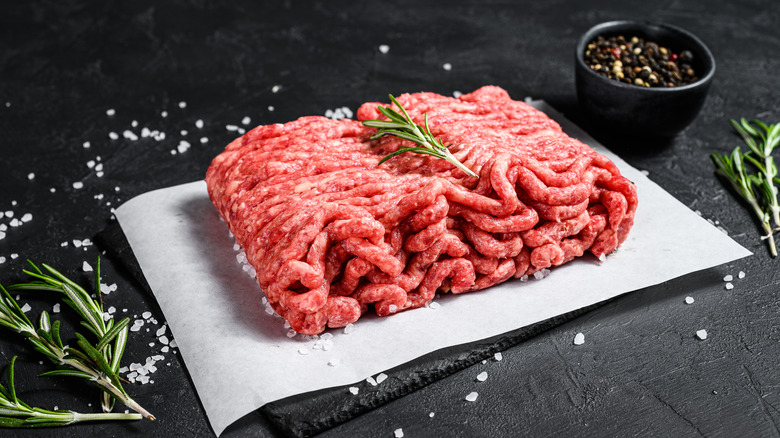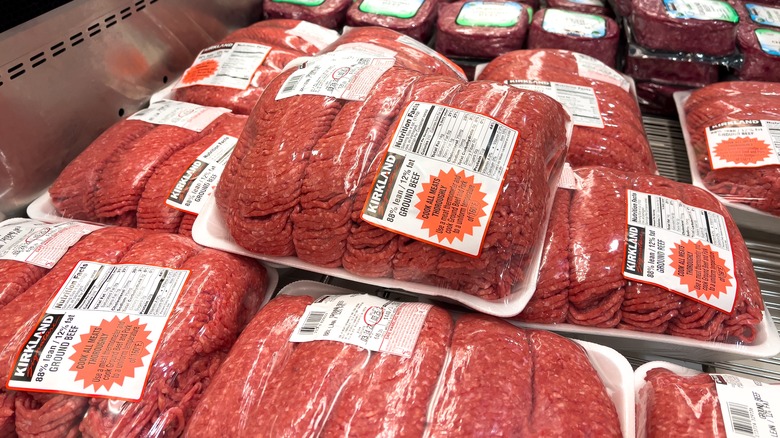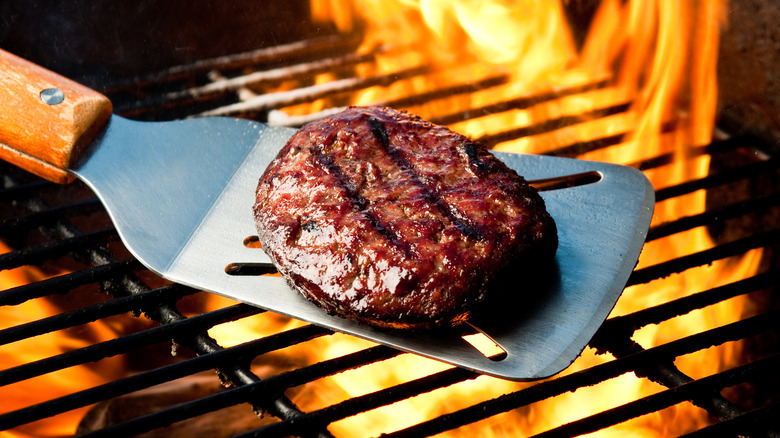Why Your Ground Beef Appears To Shrink While Cooking
Ground beef is the base of so many classic meals. From tacos to hamburgers, this extremely versatile meat can be shaped and seasoned in endless ways to help you create a wide variety of delicious and hearty recipes. However, one common yet unfortunate happening that can leave you feeling less than satisfied is when your beef appears to shrink during cooking.
This is normal and isn't necessarily an indication that you've done anything wrong, but it can still lead to disappointment. To manage the shrinking and end up with the best looking and tasting meals, it's crucial that you pay attention to both the ground beef's fat content and its cooking temperature.
In the typical cooking scenario, the most amount of shrinkage occurs due to high cooking temperatures and overcooking. Additionally, ground beef's fat content plays a significant role in how juicy and delicious your meat ends up after cooking, which is everybody's goal.
Consider the fat content
A big part of how your ground beef will turn out starts before you even leave the grocery store. It's important to choose the best ground beef for the recipe you'll be making based on a variety of factors, including fat content. Prepackaged ground beef comes with an indication of the ratio between lean beef and fat within it.
One common ratio is "80/20," which explains that the meat is made up of 80% lean beef and 20% fat. Alternatively, there are less lean but often also less expensive ratios like "70/30." As your ground beef cooks, the fat will render out of it, causing that plump burger you expected to actually finish with a less voluminous appearance by the time it's ready to eat.
Because leaner ground beef has less fat to render out of it, it will also have less shrinkage. However, you don't want to automatically choose the leanest variety just because of this. You should keep in mind that fat is also an important part of the overall dish's flavor. Additionally, fattier meats don't dry out as quickly, creating a generally more forgiving cooking process.
Focus on the cooking temperature
Once you have chosen the correct ground beef, the next most important factor when it comes to managing shrinkage is how you cook it. Cooking your ground beef at too high of a temperature will cause the fat to render out too quickly. In general, you want your food to retain some of its juices so it doesn't end up with a dry texture and bland taste.
By cooking your ground beef at a medium temperature, you'll allow the fat to render out more slowly, which will greatly lessen the amount of shrinkage you experience. An exception to this rule, however, is when cooking beef burgers, you'll generally want to use high heat to form a crust and caramelize the patties.
It's important to understand that all meat will experience a degree of shrinkage during the cooking process, but the considerations mentioned here can help you better manage it. So the next time you're preparing to cook up a ground beef masterpiece, be sure to consider the fat content and temperature, as well as our best tips for cooking ground beef in order to make the best dish possible.


